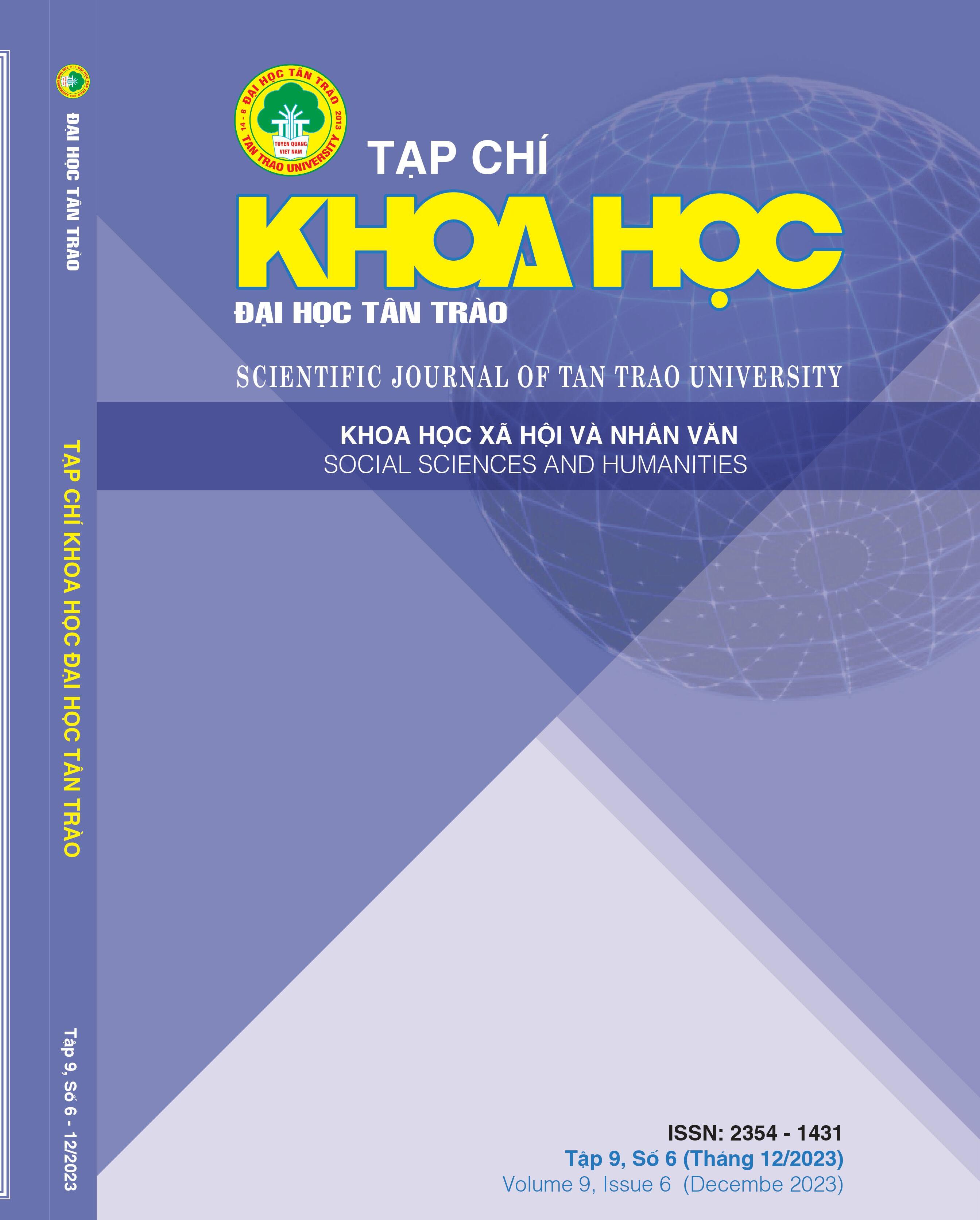STATE MANAGEMENT ON PRESERVATION AND DEVELOPMENT OF TRADITIONAL CULTURAL VALUES - PRACTICE IN LAO CAI PROVINCE
DOI:
https://doi.org/10.51453/2354-1431/2023/1041Abstract
Preservation and development of traditional cultural values is one of the important contents in the country's overall development strategy. With the orientation of building an advanced culture rich in national identity, the Party and the State have issued many Guidelines, Directives, and Plans to achieve that goal. With the characteristics of being a multi-ethnic and multi-cultural province, in recent times, Lao Cai province has always performed well the tasks of preservation and development of traditional cultural values of the province and achieved many results. However, in practice, this activity still has some difficulties that need to be resolved. In the coming time, Lao Cai province needs to synchronously implement solutions to improve the effectiveness of the management of preserving and developing those cultural values.
Downloads
References
[1]. Lao Cai Provincial Ethnic Committee (2020), Report No. 202/BC-BDT on the organization and implementation of surveys to collect information on the socio-economic situation of 53 ethnic minorities in 2019.
[2]. Huyen , G.T.(2011), Some cultural and development topics, Lecture collection, Department of Literature and Development, Ho Chi Minh Nation Academy of Politics and Public Administration, Academy of Politics - Public Administration Region I, Politics and Administration Publishing House.
3]. Department of Culture, Sports and Tourism of Lao Cai province (2022), Report summarizing the management, protection and promotion of relic values in Lao Cai province.
[4]. Prime Minister (2011), Decision No. 1270/QD-TTg on approving the Project on preserving and developing the culture of Vietnam's ethnic minorities until 2020.
Downloads
Published
How to Cite
Issue
Section
License

This work is licensed under a Creative Commons Attribution-ShareAlike 4.0 International License.
All articles published in SJTTU are licensed under a Creative Commons Attribution-ShareAlike 4.0 International (CC BY-SA) license. This means anyone is free to copy, transform, or redistribute articles for any lawful purpose in any medium, provided they give appropriate attribution to the original author(s) and SJTTU, link to the license, indicate if changes were made, and redistribute any derivative work under the same license.
Copyright on articles is retained by the respective author(s), without restrictions. A non-exclusive license is granted to SJTTU to publish the article and identify itself as its original publisher, along with the commercial right to include the article in a hardcopy issue for sale to libraries and individuals.
Although the conditions of the CC BY-SA license don't apply to authors (as the copyright holder of your article, you have no restrictions on your rights), by submitting to SJTTU, authors recognize the rights of readers, and must grant any third party the right to use their article to the extent provided by the license.





